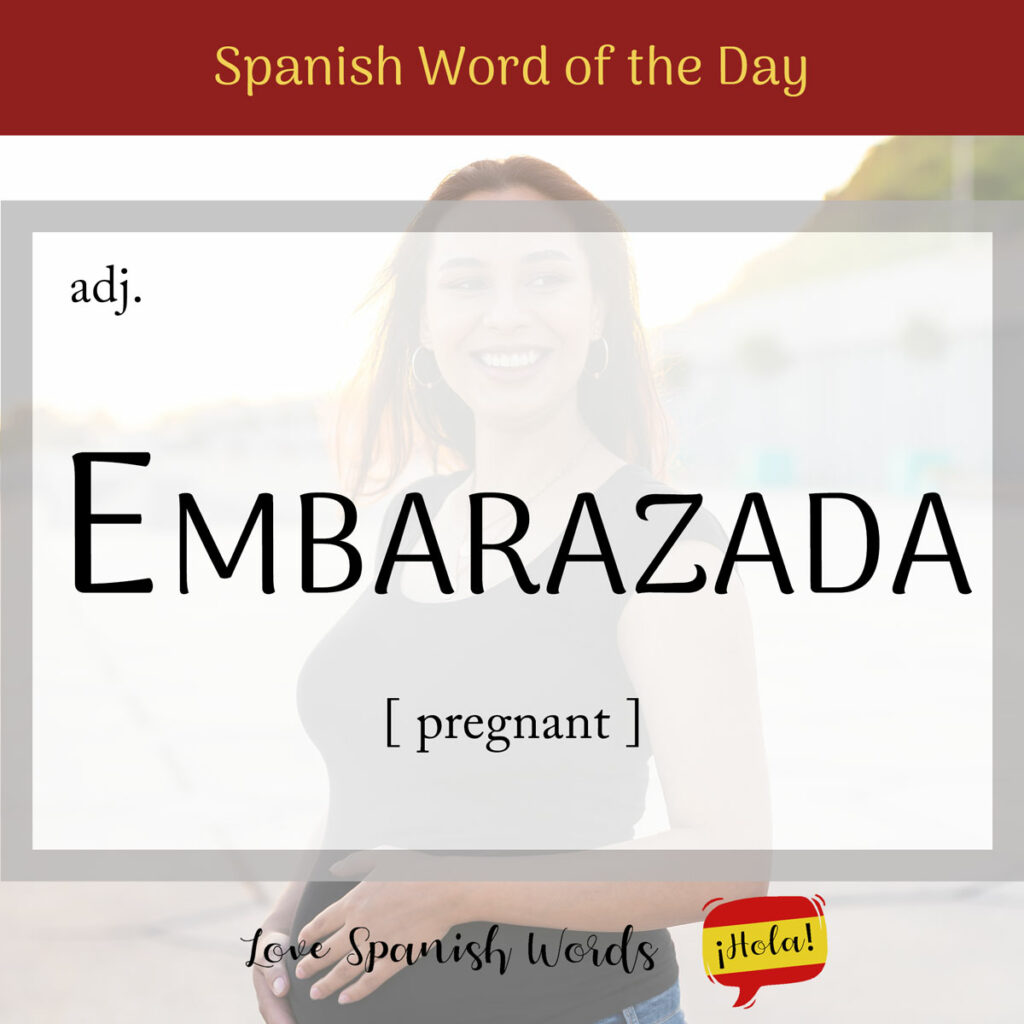If a Spanish woman tells you she is embarazada, she isn’t expressing embarrassment but rather announcing that she is expecting a child. That’s right, embarazada is the Spanish word for pregnant!
Latin American Pronunciation
European Pronunciation

Embarazada is an adjective and the feminine past participle of the verb embarazar, meaning to impregnate.
Está embarazada de tres meses.
She is three months pregnant.
The masculine equivalent embarazado can be found in the dictionary, but that is only because Spanish dictionaries always give the masculine form of adjectives as the base form. In reality, there are very few occasions to use embarazado in everyday life.
El caballito de mar macho es el único animal macho que queda embarazado.
The male seahorse is the only male animal that gets pregnant.

If you want to say that you are pregnant with someone, you can use the preposition de after embarazada.
Está embarazada de su primer hijo.
She is pregnant with her first child.
Some common verbs you will see used with embarazada include:
- estar embarazada = to be pregnant
- quedarse embarazada = become pregnant
- dejar embarazada a X = to get X pregnant / to knock X up

In the introduction, I alluded to the similarity between the Spanish term embarazada and the English term embarrassed. These words are known as false friends – words in two languages that look or sound similar but have different meanings. The Spanish word for embarrassed is avergonzado.
Ella se sintió avergonzada de anunciar que estaba embarazada. = She was embarrassed to announce that she was pregnant.
What’s interesting, however, is that they do share the same origin, which was the Portuguese word embaraçar meaning “to block / hinder / impede.”

Embarazada (plural: embarazadas) can also function as a noun that means, you guessed it, pregnant woman.
Las embarazadas no deben comer ciertos alimentos.
Pregnant women should not eat certain foods.

